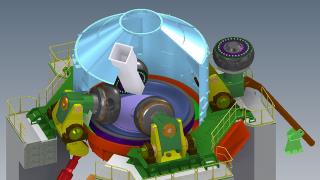The key cause of the high energy intensity in the cement production process is the high heat required to form alite, the main constituent of Portland cement. One option is to lower the alite content, which leads to a higher share of belite. However, such high-belite cement often has a lower early strength, impacting on the quality of the final product. To address this issue, achieving a suitable control of belite reactivity is essential. By Dr Eng Daisuke Kurokawa and Shun Niijima, Taiheiyo Cement Corp, Japan.
As alite formation requires a significantly large amount of energy compared to other clinker minerals, it is theoretically possible to achieve a remarkable reduction of energy consumption in clinker manufacturing by reducing the alite content in cement.1 The decrease of alite in clinker generally occurs with the increase of belite. For this reason, high belite cement with small amounts of alite offers an opportunity to save energy.
